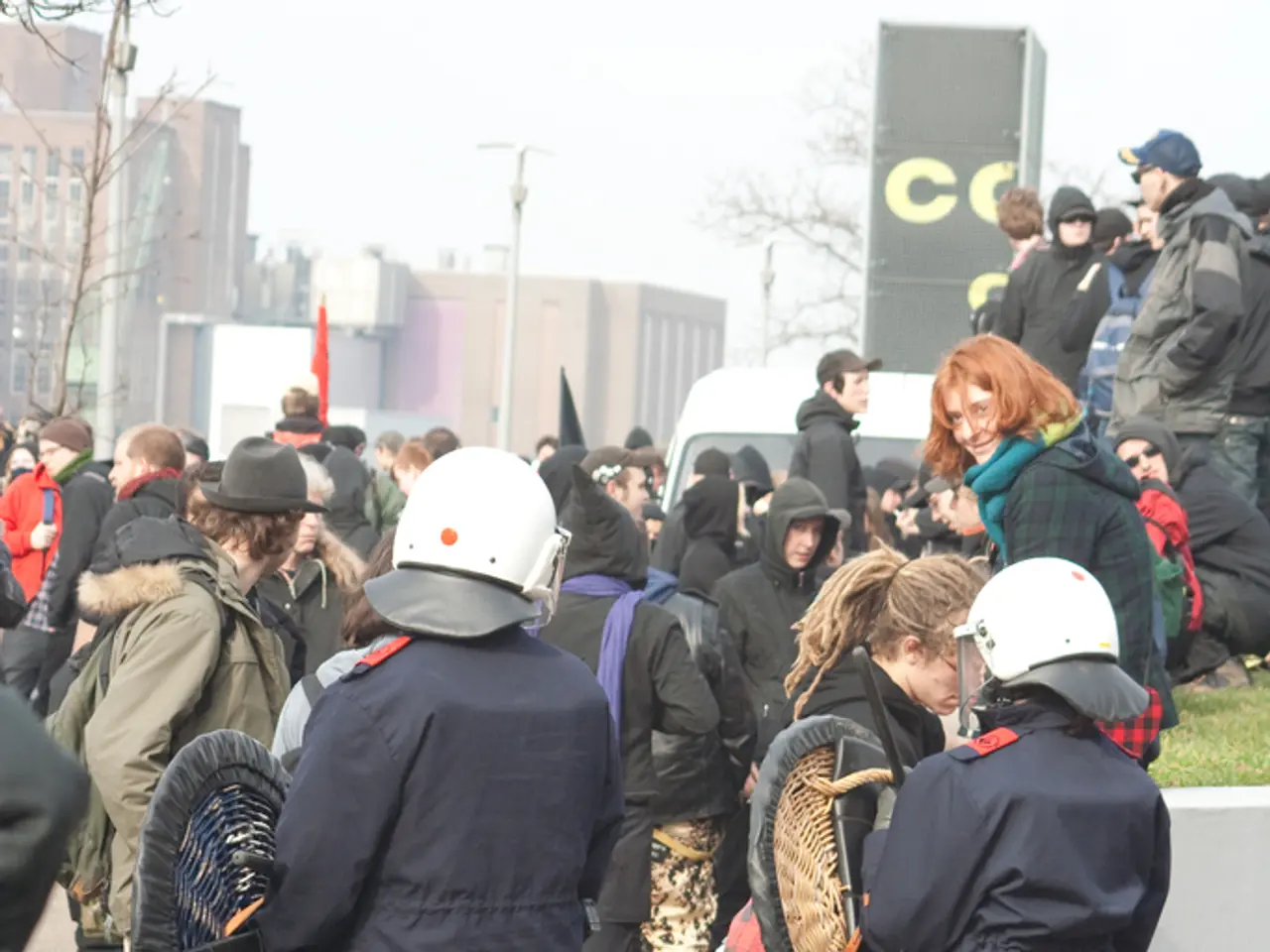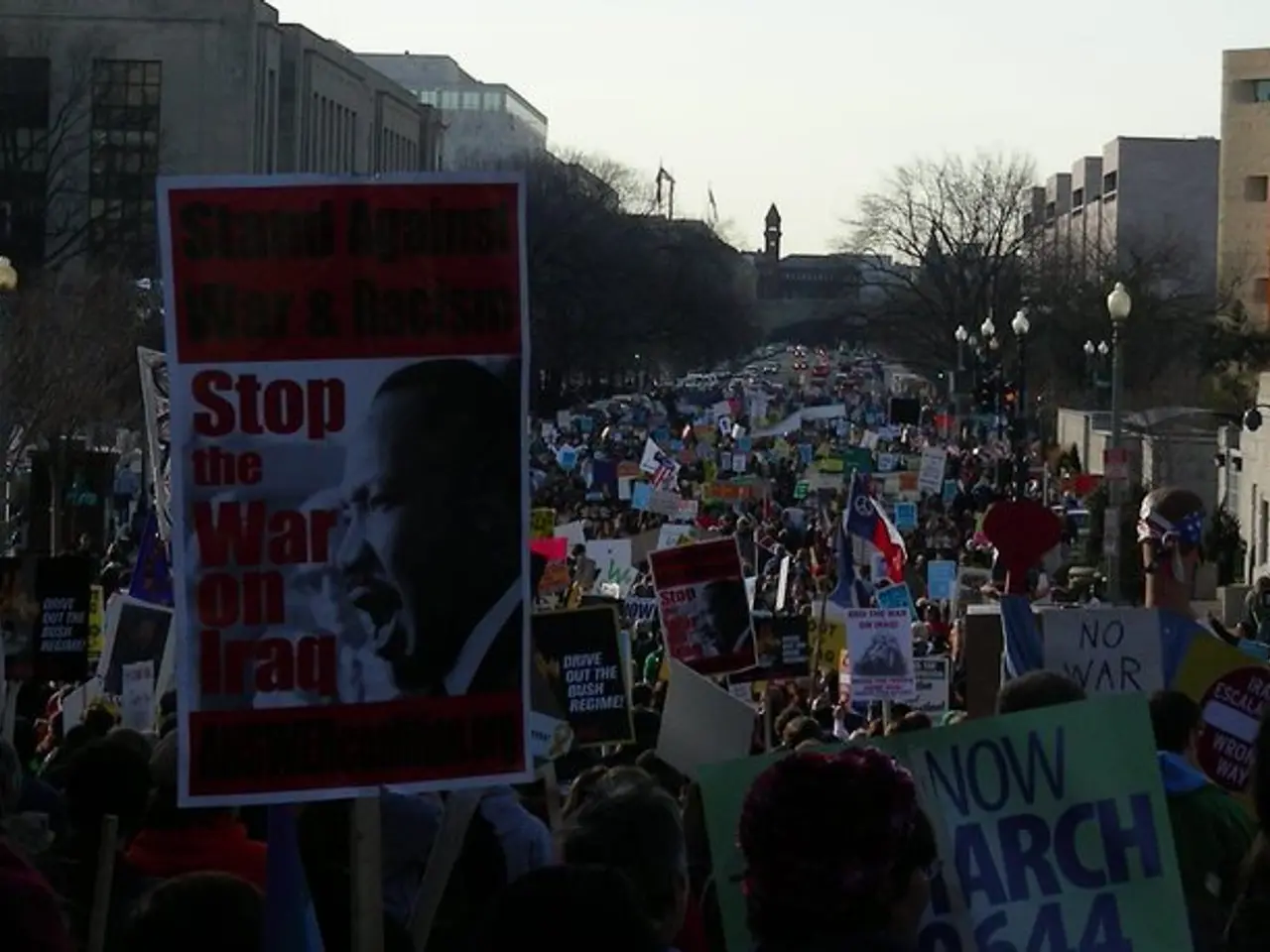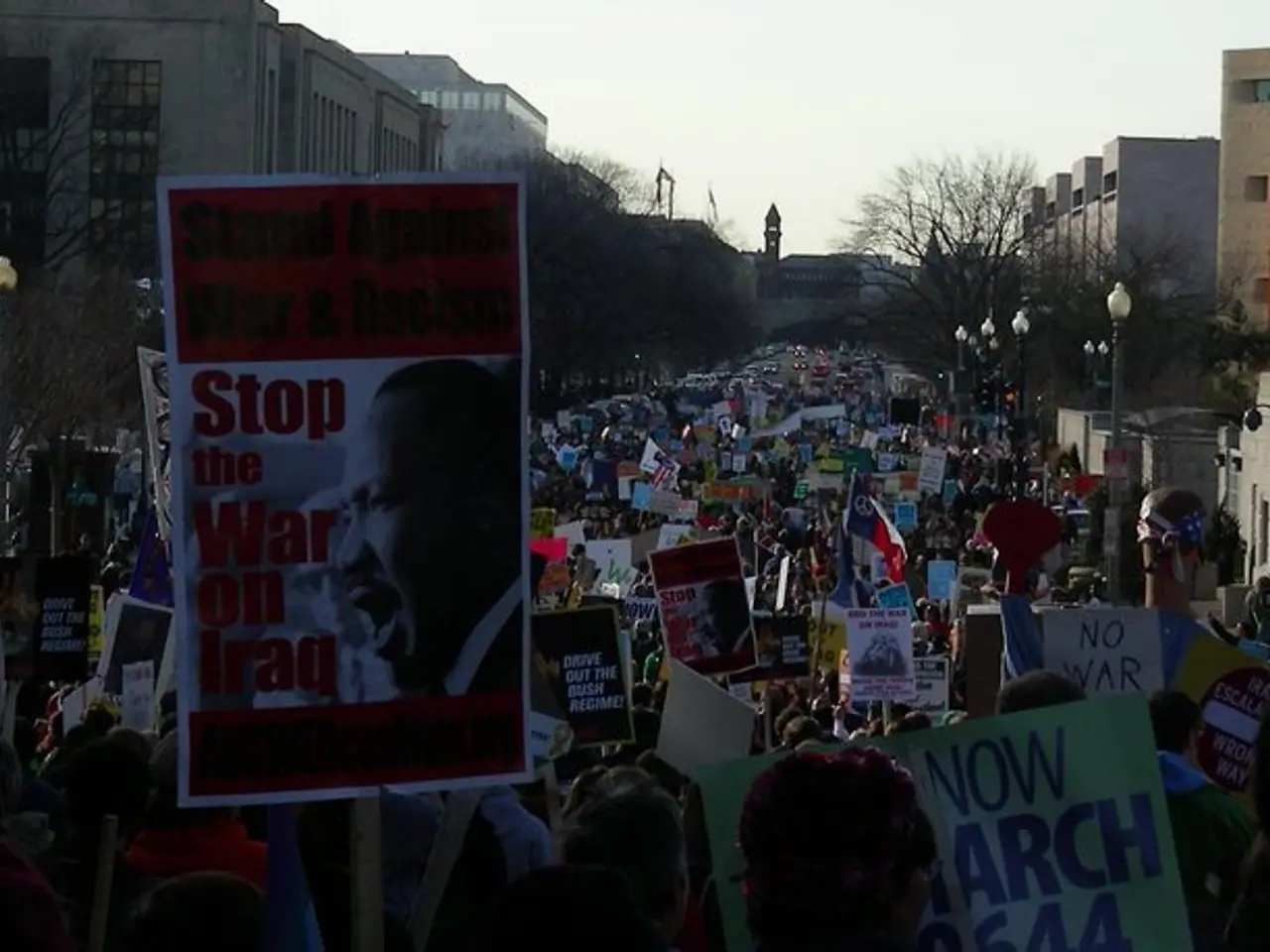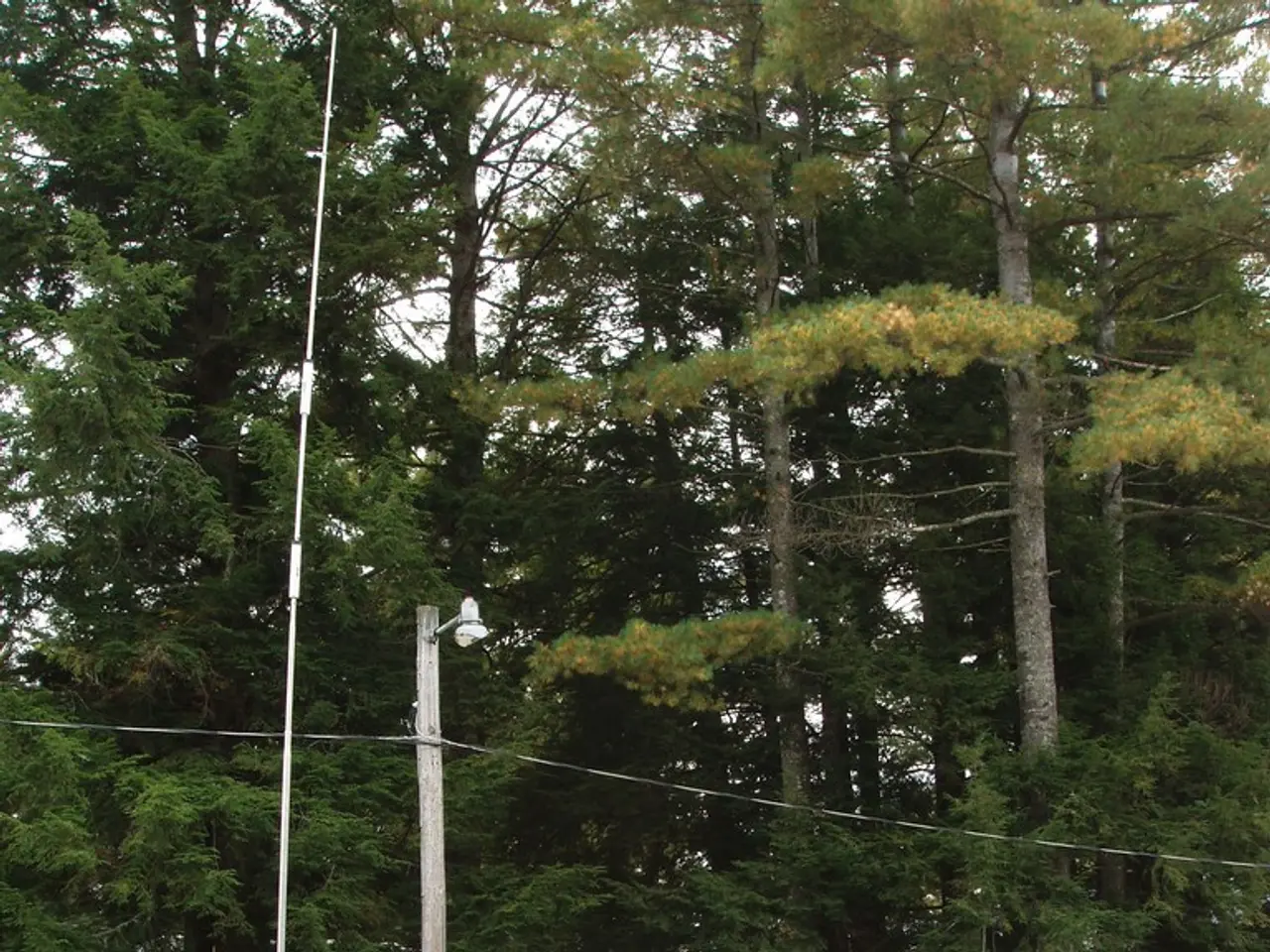High Court in Bombay Confirms Legal Basis of Unlawful Activities Prevention Act
In a recent development, the Bombay High Court has dismissed a petition challenging the constitutional validity of the Unlawful Activities (Prevention) Act (UAPA). The petition, filed by Anil Baburao Baile, who was issued a notice in 2020 in connection with the Elgar Parishad violence case of 2018, was rejected by a division bench comprising Justices A.S. Gadkari and Neela Gokhale. The court ruled that the Act, in its current form, is constitutionally valid, and the petition failed [2][3][5].
The UAPA, an anti-terror law, has been a subject of criticism for being used to target dissenters. The petition sought to declare UAPA and the now-suspended Section 124A of the Indian Penal Code (sedition) unconstitutional, but these contentions were rejected by the court [1].
Meanwhile, a similar petition challenging the provisions of UAPA is pending before the Delhi High Court. Although the Bombay High Court has made its decision, the matter remains under consideration in Delhi, awaiting a final decision [2].
It is important to note that the Supreme Court allowed High Courts to proceed with petitions challenging the amendments to the UAPA in February this year. However, the court observed that it should not become the court of first instance, except in rare instances [4].
As we await a detailed judgment from the Bombay High Court, the challenge to UAPA's validity continues to be heard in the Delhi High Court. The outcome of this case could have significant implications for the use of the UAPA in future cases involving alleged terrorist activities [2].
| High Court | Status of UAPA Challenge Petition | |------------------|------------------------------------------------| | Bombay High Court | Petition dismissed; UAPA held constitutionally valid (July 17, 2025) | | Delhi High Court | Similar petition pending, no final decision yet |
Sources: [1] https://www.thehindu.com/news/national/bombay-high-court-dismisses-plea-against-uapa-as-unconstitutional/article64857632.ece [2] https://www.barandbench.com/news/litigation/bombay-high-court-dismisses-uapa-challenge-petition-delhi-high-court-petition-remains-pending [3] https://www.livelaw.in/news-updates/bombay-high-court-dismisses-uapa-challenge-petition-anil-baburao-baile-as-unconstitutional-183208 [4] https://www.barandbench.com/news/litigation/supreme-court-allows-high-courts-to-proceed-with-uapa-amendments-petitions
Politics surrounding the Unlawful Activities (Prevention) Act (UAPA) remains a point of discussion in the general news, with the Bombay High Court's recent decision to uphold the Act's constitutional validity adding to the ongoing debate. Simultaneously, a similar challenge to UAPA's provisions is being heard in the Delhi High Court, with a final decision yet to be made. These court proceedings have significant implications for the use of the UAPA in future cases involving alleged terrorist activities.





